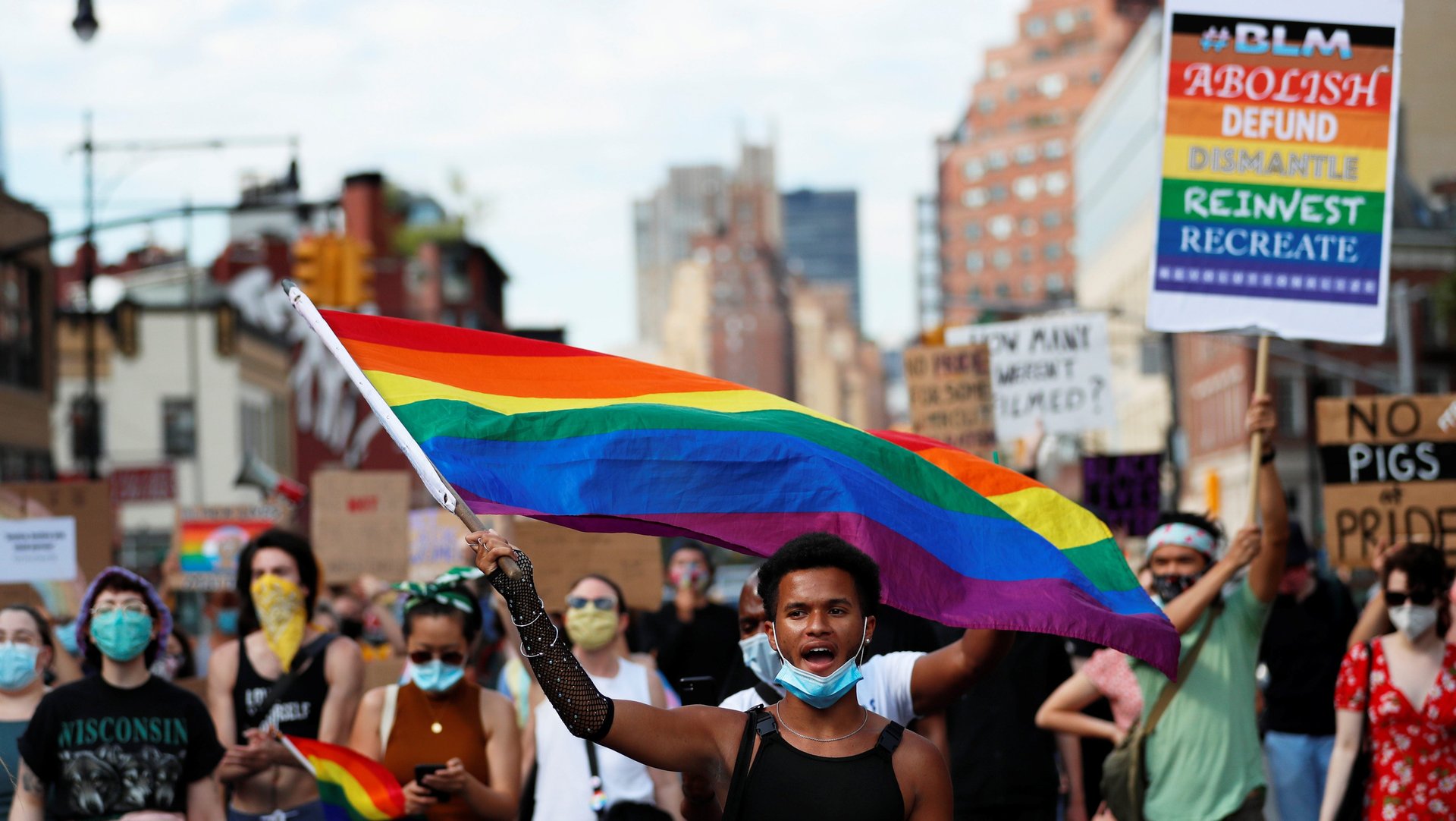What Pride organizers and participants should do about monkeypox
Pride month is well underway in the US, with parades and events scheduled throughout June to celebrate the LGBTQ community. But just as covid restrictions have eased, and having a relatively carefree good time seemed within reach, a new public health threat is looming over gatherings: monkeypox.


Pride month is well underway in the US, with parades and events scheduled throughout June to celebrate the LGBTQ community. But just as covid restrictions have eased, and having a relatively carefree good time seemed within reach, a new public health threat is looming over gatherings: monkeypox.
In the past few weeks, over 800 cases of the disease have emerged outside its endemic region of central and west Africa, predominantly in the US and Europe. The virus spreads through direct contact with an infected person’s skin, lesions, and bodily fluids. It causes rashes, fever, and fatigue. In 1% to 3% of cases it can be deadly, although there have been no deaths among these new cases.
While tracking is still insufficient to identify all cases, a majority of the monkeypox cases that have been detected outside Africa have been among men who have sex with men,
Monkeypox isn’t a sexually transmitted infection (STI) per se (pdf), but it can be spread through close contact including sex. The reason it’s been detected more among gay and bisexual men may be that they tend to be more careful and undergo more health screenings, especially when it comes to STIs, and monkeypox can present as a contagious rash that appears on the genitals.
Other communities should be adopting similar precautions and vigilance, as they face the same risk of contracting monkeypox, and cases might have a higher chance of going undetected. In view of upcoming gatherings and festivities, the public health and LGBTQ communities are answering questions about monkeypox, and sharing harm reduction strategies.
Avoiding associating stigma with monkeypox
HIV-positive individuals who are undergoing treatment should know that their status does not put them at a higher risk of contracting monkeypox, although there is little data to evaluate the effects of the virus on more advanced cases of HIV/AIDS.
“This is not off-script for things that our community has dealt with before,” said Demetre Daskalakis, the Centers for Disease Control and Prevention’s (CDC) HIV lead in a meeting organized by InterPride, an organization producing Pride events, to share strategies for prevention and protection. The LGBTQ community, he said, is more used to dealing with public health threats than other communities, and spreading the message that it’s important to get a medical opinion on any rashes can become a tool to control potential spread both among and beyond gay and bisexual men.
“Some people are concerned that this is happening during Pride—I can’t imagine a better time to get the message out about something like this,” says Daskalakis.
“My one concern is the stigma that surrounds this, there’s a lot of conversation about this being another ‘gay disease,‘” says InterPride co-president Julian Sanjivan. “The way this spreads, everyone can be exposed to it. It so happens that it’s Pride season, there are a lot of community members congregating in crowded areas,” he says.
How to avoid monkeypox
At the moment, there is no indication that medical intervention, such as preventive vaccination, would be indicated or even helpful, given that it takes some time to develop full immunity. And with limited testing capacity for monkeypox, screening participants at events is unrealistic, too.
The recommendations shared by the CDC (pdf) are pretty straightforward, and apply to Pride events and participants as well as to any other gatherings and sexual activities. The guidelines include:
- If you are unwell, have sores, or have been in close contact with someone who does, avoid gatherings and sex until you have been seen by a doctor.
- If you receive a diagnosis of monkeypox, share it as soon as possible with anyone you can remember having close contact with, particularly sexual, in the previous 21 days.
- Try to reduce the amount of exposed skin in large crowded gatherings, so to avoid accidental contact and transmission.
- Be mindful of kissing and other close-contact activities.
- If you are at a party or event when minimal clothing is worn, pay attention to rashes on people around you; alert them, and avoid direct contact.
- Places like saunas, spas, or sex clubs carry higher risk of being venues spreading monkeypox; be especially careful in such locations.
- Consider having sex with your clothes on, and wash your hands, body, and any fabrics and toys you may have used during sex.
- Virtual sex is safe.